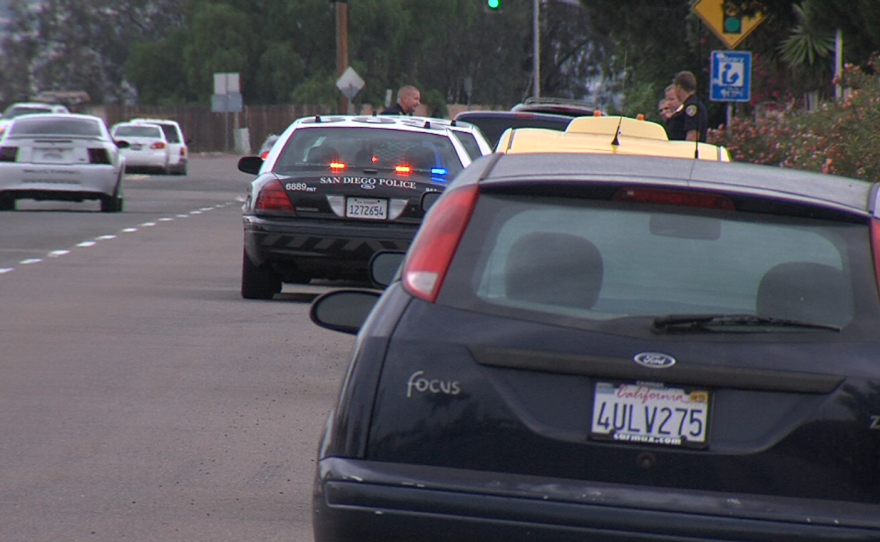Key Findings
-- Citywide, disparities between black and white drivers were evident in vehicle stop data from 2014, but not 2015 or the combined 2014-2015 dataset;
-- no such disparities were found between whites and either Hispanic or Asian/Pacific Islander drivers in 2014 or 2015;
-- data from both years revealed that white drivers were more likely to be pulled over in neighborhoods south of Interstate 8 during daylight hours, when officers could see the person's race;
-- citywide and across 2014 and 2015, black and Hispanic drivers were more likely than white drivers to be searched following a traffic stop, but whites were more often found with contraband;
-- black, Hispanic, and Asian/Pacific Islander drivers were subject to field interviews at greater rates than white drivers;
-- no meaningful difference existed in the rate at which drivers from each racial or ethnic group were arrested;
-- black drivers were less likely to receive a citation than white drivers stopped under similar circumstances; and
-- matched Hispanic, white, and Asian/Pacific Islander drivers were cited at similar rates.
San Diego officials discussed next steps and community members called for substantive change at a city council committee meeting Wednesday after a report revealed San Diego police treat some minority drivers different than whites.
San Diego State University researchers presented at the meeting final results from their study on police department traffic stop data that found black and Hispanic drivers were scrutinized more heavily than whites. The 140-page document included 10 recommendations, including enhanced training for officers, a better data collection system and greater community engagement.
San Diego Police Chief Shelley Zimmerman said she has already acted on some of them.
“We have provided courses that cover non-biased based policing, procedural justice, effective interaction, and emotional intelligence with the specific intent of increasing self awareness in our employees,” Zimmerman said.
She added that upcoming training will emphasize community engagement.
“We are confident by working together we will foster the highest level of public trust and set the national model for community police relations,” she said.
Norma Chavez-Peterson, who leads the ACLU of San Diego and Imperial Counties, pushed for more specifics from the city and police department to address the report’s findings. Chavez-Peterson referred to the city’s initial response, which was outlined in a Nov. 18 memo from the deputy chief operating officer, as “very general.”
“We are not here to villainize our police department or minimize the important work they do every day. We are here to advocate for fair and just policing,” she said.
Chavez-Peterson called on the department to acknowledge the disparities and apologize.
She also pointed to testimony from an officer included in the report that revealed “tactics that contribute to racial profiling.”
According to the report, the officer said, “I'm not going to lie. If I see somebody that's totally out of place and there's a reason to stop them, I'm going to stop them and ask them what they're doing.”
Researchers noted only a few San Diego cops discussed taking this approach. Most others, they said, denied using race or ethnicity as a factor when stopping an individual.
The researchers' electronic survey of police officers found that they felt black residents were the least comfortable interacting with law enforcement compared to Hispanic, Asian/Pacific Islander and white community members.
The results showed 39 percent of officers felt blacks were comfortable interacting with police, while 62 percent said Hispanic residents felt comfortable, 80 percent said Asians felt comfortable and 88 percent said whites felt comfortable.
“These responses indicate that officers are aware of how they may be perceived by different racial/ethnic groups,” the researchers said in the report.
However, when asked if racial/ethnic bias is an issue for the department, only 4 percent of officers agreed.
At the meeting, Councilwoman Marti Emerald, who chairs the public safety committee and requested the report, and Councilwoman Todd Gloria pointedly asked Zimmerman to acknowledge the racial bias identified in the report.
Zimmerman responded that everyone has bias, including officers.
Emerald, whose term ends in December, urged city and police officials not to ignore the study’s findings.
“This is one of those important reports that should not wind up on a shelf. We need to get to work on this,” said the District 9 councilwoman.
District 9 includes City Heights, a Hispanic-majority community where many anti-police protests have taken place.
Councilwoman Myrtle Cole, whose district represents a large black and Hispanic population, asked the department take specific steps to identify how it will make changes based on the report’s findings.
She requested SDPD commit to collecting data as called for in new state legislation on racial profiling, to identify potential expenditures that will be needed and report on how the findings will be incorporated into academies and other training programs.
“Whether consciously or unconsciously, racial profiling is clearly happening in our city. San Diego, we have to do better,” Cole said.
The committee, which also includes Councilman Chris Cate, unanimously forwarded the report to the full City Council for it be heard in February.
The analysis by SDSU, based on tens of thousands of traffic stop data cards filled out by officers in 2014 and 2015, was limited to stops made for traffic violations, not for drivers who met suspect descriptions, code enforcement actions or other types of service. It used a unique research method called the "Veil of Darkness," which compared traffic stops that occurred during daylight hours — when presumably it may be easier for an officer to identify a person's race — to those that took place at nighttime.
An SDSU spokesman said researchers Joshua Chanin, Megan Welsh, Dana Nurge and Stuart Henry would not be giving interviews about the report.








